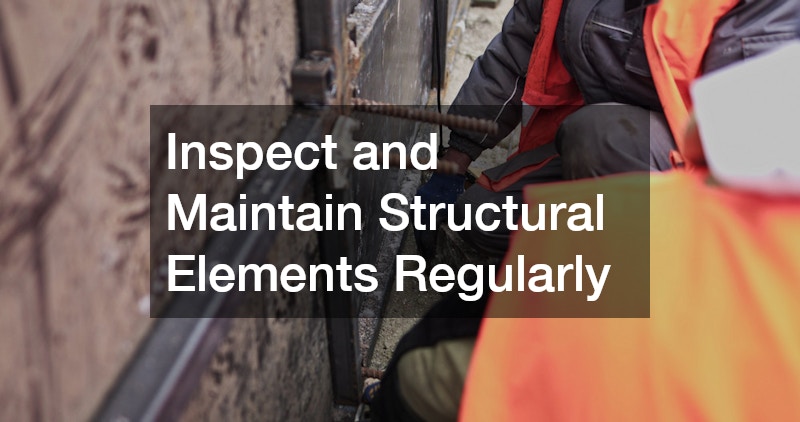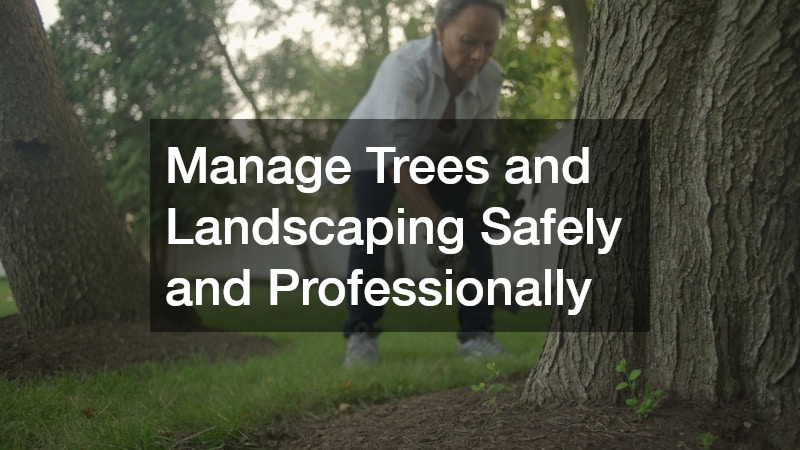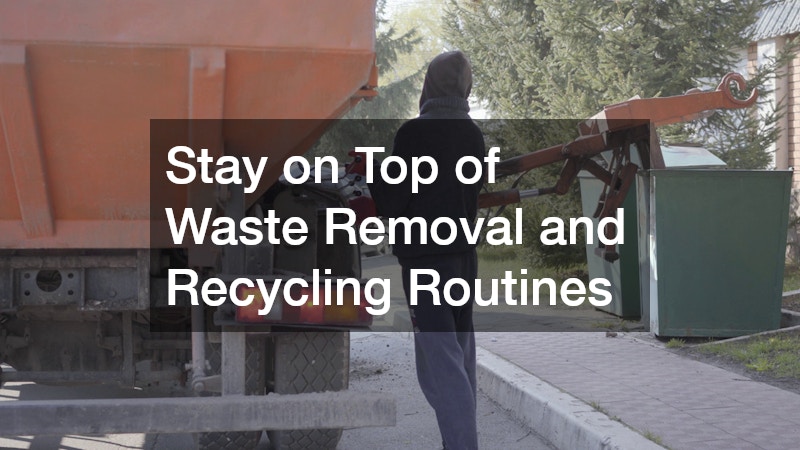Becoming a homeowner is an exciting milestone, often accompanied by pride, security, and accomplishment. However, it also brings a variety of responsibilities that can be overwhelming at first. Unlike renting, where property issues are generally handled by a landlord or property management company, owning a home means you’re now in charge of maintaining and protecting every corner of your space. From the roof to the foundation, and everything in between, staying proactive is essential for preserving your investment and ensuring your home remains a safe and welcoming place for years to come.
Understanding what to prioritize can make all the difference, especially in the first few years. Whether you plan to stay long-term or see your home as a stepping stone, establishing good maintenance habits early will save time, money, and stress. With the right home care tips, new homeowners can confidently tackle the most important areas of upkeep, avoid common pitfalls, and learn how to recognize when it’s time to call in professionals for more complex jobs. This guide covers some of the key areas that demand attention, offering insights on both general care and specialized services.
Inspect and Maintain Structural Elements Regularly

One of the most crucial responsibilities for any new homeowner is maintaining the structural integrity of their property. This includes elements like the foundation, walls, and, of course, the roof. Regular inspections can help you spot minor problems before they become major—think of it as your home’s version of a wellness check-up. Seasonal changes, moisture, and even natural wear over time can all take a toll, so it’s important to keep an eye out for cracks, warping, and water damage. Establishing a habit of walking the perimeter of your home and visually inspecting ceilings and attic spaces will help you stay informed about your home’s condition.
When it comes to your roof in particular, working with a trusted roofing company is often the most effective way to address leaks, missing shingles, or storm damage. These professionals are equipped to spot issues that might not be obvious to the untrained eye, such as subtle sagging or soft spots that could lead to water intrusion or energy loss. Partnering with experts ensures that your roof remains a strong shield against the elements. This is one of the home care tips that can prevent costly repairs and even extend the life of your entire home.
Keep Driveways and Walkways in Good Condition
Driveways and walkways might not be the first thing you think of when buying a home, but they play a vital role in both safety and curb appeal. Cracks, sunken slabs, or uneven surfaces can create tripping hazards and allow water to pool in unwanted areas. Over time, this can lead to structural damage or even compromise the foundation of your house. Regular cleaning, sealing, and attention to drainage can keep these areas both attractive and functional. Well-maintained walkways are not just about looks—they also reflect a homeowner’s commitment to upkeep and care.
If you notice sections of concrete that have settled or become uneven, it may be time to consult with local mudjacking companies. Mudjacking is a method used to lift sunken concrete, restoring its original position without needing a full replacement. This service is beneficial for driveways, sidewalks, patios, and other flat surfaces around the home. By leveling these areas, you not only improve appearance but also reduce liability risks and prevent further erosion or structural stress. It’s another thoughtful inclusion among your home care tips, especially in regions prone to shifting soil or heavy rainfall.
Upgrade Entry Points for Enhanced Curb Appeal
Your home’s entry points—front doors, garage doors, and side entrances—play a major role in security and visual appeal. Upgrading or maintaining these access points can increase your property’s value and make a strong first impression. Beyond aesthetics, these areas are critical in keeping out the elements and maintaining energy efficiency. A well-sealed and properly functioning entryway helps regulate interior temperature, keeping utility costs down and making your home more comfortable throughout the year.
For many homeowners, one of the easiest and most effective improvements is investing in new garage door installations. Modern garage doors not only offer sleek design options but also feature enhanced insulation, quiet operation, and smart security technology. If your garage door is outdated, noisy, or damaged, replacing it can instantly boost your home’s appearance and function. It’s one of those home care tips that pays off in both form and function, especially when selling or preparing for seasonal changes.
Manage Trees and Landscaping Safely and Professionally

Landscaping brings beauty and personality to your property but requires regular care to remain safe and sustainable. Trees and large shrubs, in particular, need to be managed to prevent overgrowth, disease, and interference with power lines or roofing. Fallen limbs, root damage, or dying branches can create serious hazards for your property and anyone walking nearby. Seasonal trimming, mulching, and responsible planting are all important aspects of landscape upkeep.
For larger trees or complex trimming, hiring a commercial tree maintenance service can ensure the job is done safely and correctly. These professionals are equipped to assess the health of your trees, remove hazardous limbs, and shape growth in a way that protects both the tree and your home. Routine professional evaluations can prevent long-term issues, including foundation damage or pest problems caused by overhanging limbs. Among the lesser-known but essential home care tips, proactive tree management protects your investment and enhances your outdoor space.
Ensure Lawn Irrigation Systems Function Efficiently
A green, healthy lawn depends on a well-functioning irrigation system, especially during hot or dry months. Whether you’re using an automatic sprinkler setup or manually watering, consistency is key to preventing brown patches, overgrowth, or soggy spots. Poor water distribution can also encourage weed growth, mold, or insect infestations. It’s important to test your system periodically and watch for signs of poor performance, such as low water pressure, stuck sprinkler heads, or sudden spikes in your water bill.
When problems arise, it’s wise to schedule a lawn sprinkler repair rather than trying to fix it yourself. Irrigation systems can be intricate, and one damaged valve or clogged nozzle can disrupt the entire setup. Professionals can quickly diagnose issues and restore your system to optimal performance, helping you conserve water and protect your landscaping investment. As far as home care tips go, maintaining a functional sprinkler system is a small but powerful way to keep your yard thriving with minimal hassle.
Secure Your Property With Proper Perimeter Solutions
Creating a secure and private environment is a key part of homeownership, and it begins with your property’s perimeter. Fencing helps define your space and increase privacy and enhances safety by keeping children and pets safely within bounds while deterring unwanted visitors. A well-designed fence can boost your home’s aesthetic appeal and increase its market value. Material, height, and design should all align with your home’s needs, as well as local codes and neighborhood standards.
If you’re considering a new installation or replacement, hiring a commercial fencing service can ensure your fence is durable and compliant with regulations. These professionals can help you choose the best materials—such as wood, vinyl, or metal—and ensure everything is properly anchored and leveled. A sturdy, well-installed fence does more than just look good; it contributes to overall peace of mind. Among the many home care tips homeowners should consider, installing or upgrading a quality fence offers a great blend of function and curb appeal.
Address Plumbing Issues Before They Escalate

Plumbing problems are among the most dreaded issues for any homeowner, and understandably, what starts as a slow drain or odd gurgling noise can quickly turn into a major mess. Regularly checking sinks, toilets, and drainage systems can help catch problems early and prevent water damage. A proactive approach to plumbing saves money and protects your home’s foundation, flooring, and air quality from the effects of moisture or mold.
One particularly serious issue to watch for is a sewer back up, which can be caused by blockages, tree root intrusion, or aging pipes. A backup can lead to contaminated water flooding into your home—posing significant health risks and requiring expensive cleanup. Professional inspection and maintenance of your sewer lines, especially in older homes, can prevent these emergencies. Of all the home care tips to keep in mind, monitoring your plumbing system regularly is one of the most critical for long-term peace of mind.
Choose Durable and Stylish Kitchen and Bath Surfaces
Kitchens and bathrooms are two of the most frequently used areas in a home, and their surfaces take the brunt of daily activity. When selecting materials for countertops, it’s important to balance style with functionality. Durability, stain resistance, and ease of cleaning are just as important as color or finish. Choosing high-quality surfaces can also add to the resale value of your home, as buyers often prioritize updated kitchens and baths in their decisions.
A popular and lasting choice is the granite countertop, known for its elegant appearance and resistance to heat, scratches, and everyday wear. Granite surfaces require minimal maintenance and come in a wide range of natural colors, making them easy to match with any decor. Installing granite not only enhances visual appeal but also delivers long-term reliability that other materials often lack. If you’re compiling a list of home care tips that combine luxury with practicality, upgrading to granite is a smart move for both beauty and durability.
Maintain a Healthy and Efficient Wastewater System
Your home’s wastewater system is critical to its overall function, but it’s easy to ignore—until something goes wrong. For homes not connected to municipal sewers, a cesspool or septic system handles all water from toilets, showers, and sinks. Regular maintenance is key to preventing backups, bad odors, or even contamination of surrounding soil and water sources. Monitoring water usage, using septic-safe products, and avoiding flushing harmful materials can all protect the health of the system.
One essential maintenance task is hiring a cesspool pumping service to clear out accumulated solids and sludge before the system becomes overwhelmed. Most cesspools need to be pumped every three to five years, depending on usage and tank size. A professional service can inspect the system and recommend a schedule that suits your household’s needs. Including this step in your home care tips ensures your plumbing remains reliable and helps you avoid expensive repairs or environmental hazards.
Stay on Top of Waste Removal and Recycling Routines

Proper waste management is an often-overlooked aspect of homeownership, but it’s essential for keeping your property clean, hygienic, and running smoothly. Developing a consistent system for removing household garbage and recycling helps prevent odors, pests, and buildup. Knowing what materials are recyclable in your area and how to store waste safely between collection days makes your home more environmentally responsible and reduces stress on collection services.
One of the best ways to streamline this process is to take advantage of local curbside trash pickups. These services typically follow a weekly schedule, including recycling, compost, and bulky item collection, depending on your location. Familiarizing yourself with your provider’s guidelines can help avoid missed pickups or fines for improper sorting. When making your list of essential home care tips, don’t overlook waste management—it keeps your home organized, contributes to public sanitation, and supports sustainable community practices.
Owning a home comes with a new level of independence—and with that, a host of ongoing responsibilities. From structural maintenance and curb appeal to plumbing, waste systems, and outdoor care, there’s a lot to keep track of. Fortunately, you can avoid most common household issues by learning the right strategies and knowing when to call in professionals. Preventative care is almost always less expensive than emergency repairs, and regular upkeep helps your home maintain its value, comfort, and safety.
Whether it’s inspecting your roof, repairing sprinkler systems, or upgrading countertops, each area of your home benefits from informed attention. These home care tips are more than a checklist—they’re a mindset that encourages thoughtful stewardship of your space. With a little planning and the right resources, new homeowners can transition from overwhelmed to empowered, turning their house into a true home built on solid foundations.
